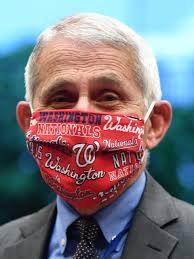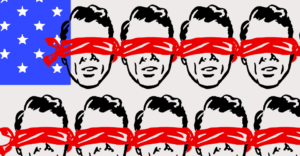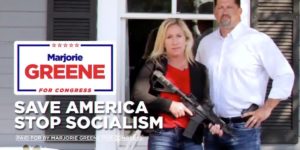
“Getting back to what you said just a moment ago that ‘X percent’—I think you said 37 percent—of doctors feel that it’s beneficial. We don’t operate on how you feel. We operate on what evidence is, and data is.”
Dr. Anthony Fauci, Fox News, April 3, 2020 (listen)
What does it mean to speak of a post-Truth era? Does it even exist? Even if this concept doesn’t quite work, what has happened in modern democracies–and in the US, in particular–that has made Truthtelling a problematic and controversial endeavor? Manifestations of this crisis are everywhere, from our catastrophically poor response to the Conoravirus pandemic to the denial of basic facts about global climate change, racial inequality, and elementary scientific principles.
In this section of our seminar, we will consider contending explanations of our contemporary crisis of Truth. It is not surprising that truth has many parents. In some cases, one may have the rare opportunity to “choose one’s family,” but in others we are stuck with the people that gave us life.
Please begin watching the 7-part Showtime miniseries, “The Loudest Voice” (available on our Course Reserve page HERE). Pay close attention to the characters in episodes 4 and 5.
11. Tuesday, March 16 What is post-Truth? Are we in age of post-Truth? If so, can we escape it?
Lee McIntyre begins the discussion of post-Truth with the following types of questions: Is post-Truth wishful thinking, political spin, mass delusion, bold-faced lying? Is it now possible to believe in absolutely anything?
Lee MacIntyre, Post-Truth Read: Chapters 1 and 2
Jonathan Haidt, “Why it feels like everything is going haywire,” The Atlantic, November 12, 2019: PRINT AND READ
Andrew Marantz, “Trolls for Trump,” New Yorker, October 24, 2016. PRINT AND READ
YOUR FIRST ESSAY ASSIGNMENT IS HERE
12. Thursday, March 18: It’s Politics, Damn Politics!
Discussion Theme: The wave of populist politics  that has swept across the liberal democratic world in recent years has many causes. One of the most prominent is the collision between elite domination and the demand for popular participation. Elites and ordinary citizens distrust and dislike each other with equal fervor. One of the primary manifestations of this conflict is the battle over truth—what it is, who determines it, and whether it even matters.
that has swept across the liberal democratic world in recent years has many causes. One of the most prominent is the collision between elite domination and the demand for popular participation. Elites and ordinary citizens distrust and dislike each other with equal fervor. One of the primary manifestations of this conflict is the battle over truth—what it is, who determines it, and whether it even matters.
Sophia Rosenfeld, Democracy and Truth A Short History, Chapter III
Paul Gosar, “Letter to Arizona,” December 7. 2020 READ
Andrew Higgens, “The Art of the Lie,” New York Times, January 10, 2010 PRINT AND READ
The Left distorts history and dismisses facts, too!
The San Francisco School District’s renaming debacle has been a historic travesty,” Mission Local, January 22, 2021, PRINT AND READ
13. Tuesday, March 23: It’s human beings, stupid!
Let’s avoid the sin of presentism. As easy as it might seem to explain everything in terms of our current political climate, human beings have always had a tenuous relationship with the Truth. Regardless of the time period, why do some people persist in their denial of simple facts or refuse to recognize clear contradictions in their own experiences. One possibility is that we are wired this way. Today, we will consider scientific theories about the psychological roots of denial.
Lee McIntyre, Post-Truth READ: Chapter 3
Albert Camus, “The Plague” (two paragraphs) READ AND PRINT
John Jerrim, et al., “Bullshiters: Who are they and what do we know about their lives?” PRINT and CONCENTRATE on the authors’ findings.
Daniel Dale, “We Like the President’s Lies,” The Star, March 26, 2017 PRINT AND READ (Think about this: How can you trust someone if you know they lie to you? This behavior is provocatively counterintuitive. Are we all guilty of this behavior?).
Ellen Cushing, “I was a teenage conspiracy theorist,” The Atlantic, May 13, 2020 PRINT AND READ
QAnon in Congress: Marjorie Taylor Greene on Twitter: HERE
14. Thursday, March 25: Class Visit by Joe Lindsley, ND alum, and co-founder of the Irish Rover
15. Tuesday, March 30: America’s problem with scientists and science.
Another source of our problem may be quintessentially American. For reasons related to the social, cultural, and religious conditions of our nation’s founding, we may be culturally wired to resist all forms of scientific and intellectual authority.
Sophia Rosenfeld, Democracy and Truth A Short History, Chapter II, pp. 42-72.
Richard Hofstadter, Anti-intellectualism in American Life
Selections available on Course Reserves in Hesburgh Library PRINT AND READ
Kathy Frankovic, “Does the Public Believe Government Statistics? It Depends.” Yougov.com, March 23, 2017. PRINT AND READ
Does the earth revolve around the earth? It depends on whom you ask: READ
16. Thursday, April 1. Merchants of Doubt: Corporate America
Today, Truth-denial takes many forms, including dismissing the dangers of both global climate change and the Coronavirus. When I was growing up, Truth-denial took the form of denying the causal link between smoking and cancer. The tobacco industry played the central role in propagating the myth that the “verdict was still out” on the connection—even though, its own scientists knew that the verdict was already in. Untold numbers of people died as result of a cause of cancer that we now recognize as self-evident.
Naomi Oreskes and Erik M. Conway, Merchants of Doubt : How a Handful of Scientists Obscured the Truth on Issues from Tobacco Smoke to Global Warming, pp. 1-34, 136-148 PRINT AND READ
As you will see, Oreskes’s and Conway’s argument is directly relevant to denialism about the scientific consensus on the existence and causes of global climate change. On this consensus, read HERE
Note: Because the Library has only “one” online copy of this book, each of you will need to visit this site at different times so that you can each download and print the material. Don’t wait until the last minute to do so, lest you run into someone who has done the same thing.
17. Tuesday, April 6: Merchants of Doubt II: Media Moguls
Fox News is, by far, the most-watched Cable news network in America. I have deliberately chosen to make it the subject of this class session because it is so controversial. Is Fox’s depiction of the Truth “fair and balanced”? Feel free to disagree with the following accounts. Indeed, I encourage you to do so!
Jane Mayer, “The Making of the Fox News White House,” New Yorker, May 11, 2019 READ (as much as you like to get an impression)
C. Thi Nguyen, “Echo chambers and epistemic bubbles,” Episteme, vol. 17, Issue 2, June 2020, pp. 141-161. PRINT AND READ
Sonam Sheth, “Fox News won a court case by ‘persuasively’ arguing that no ‘reasonable viewer’ takes Tucker Carlson seriously,” Business Insider READ
18. Thursday, April 8: Lying in the Rose Garden: 2016-2020
This session dovetails neatly with Machiavelli’s and Kant’s contrasting views about lying in politics. Although the two thinkers are long dead, everything they discuss in our readings relates directly to themes that are alive and all-too-well in America and Europe today.
To approach this topic, we will enter a political minefield. We will examine sections of the Washington Post‘s recently published compilation of 16,000+ of the Donald Trump’s “falsehoods, misleading claims, and flat-out lies.” The point of this exercise is not to attack the former President. Nor is it to prove that he lies (I don’t think anyone will dispute this fact). Rather I want to use Post‘s collection to pose three useful questions:
1. What criteria has the Post used to decide which statements are included in its compilation?
2. Has the Post consistently applied these standards?
3. Are the Post‘s claims accurate?
I am particularly interested in the last question. Assuming all of the Post‘s claims are expressed in a falsifiable form, we should be to verify their accuracy. To this end, I challenge you to identify mistakes, examples of poor reporting, and political bias in the Post‘s list. To put my questions another way: Is the Post‘s coverage of the President “fair and balanced”? Or is it “fake news”?
The Washington Post Fact Checker Staff, Donald Trump and His Assault on Truth : The President’s Falsehoods, Misleading Claims and Flat-Out Lies HERE
We will read three chapters from the collection: Chapter 6: (Immigration); Chapter 9: (Impeachment); Chapter 10 (Coronavirus), as well as the Introduction and the Conclusion. (These are not long chapters).
The WAPO has worked hard to make it difficult for you to copy chapters from this collection. At most only a few of you can go to the site at a single time to make copies. Plus there is a page limit. To make your lives easier, I will print Chapter 9 for all of you. Please copy the other sections of the book immediately. You may need to ask a friend to help you if you run over the limit.
 I will provide more information about this assignment very soon.
I will provide more information about this assignment very soon.
Don’t take the Post, or any other news source, at its word. For a good reason why, reflect on this controversy at the Post READ (as much as you like to get an impression)
For a news source to win and retain our trust, what concrete expectations should we have it?
What about Fox News’s Chris Wallace’s July 2020 interview with Donald Trump? HERE
As always, you should continue to meditate on whether it actually matters if a politician lies.
